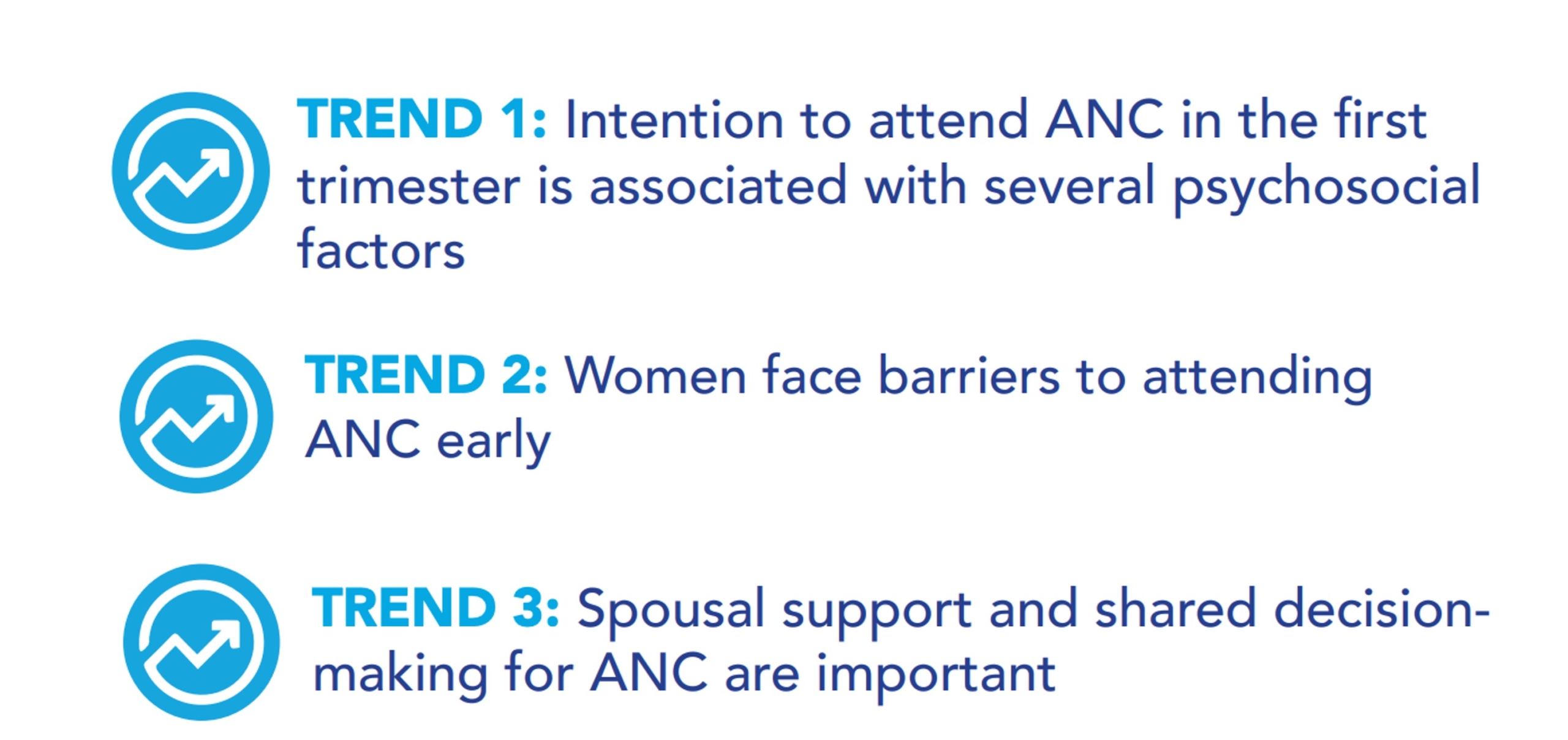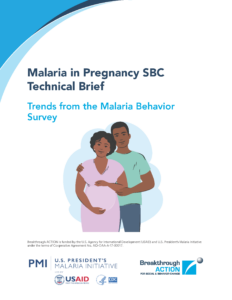Pregnant women are a particularly vulnerable group for malaria infection, and malaria in pregnancy is associated with greater rates of pregnancy loss, preterm birth, and low birth weight, among other conditions. To prevent these complications, the World Health Organization recommends pregnant women have at least eight antenatal care (ANC) contacts with a health provider and take at least three doses of intermittent preventive treatment during pregnancy (IPTp) with sulfadoxine-pyrimethamine. Starting ANC services in the first trimester of pregnancy is associated with a greater likelihood of receiving IPTp3, reducing the risk of malaria in pregnancy and associated adverse outcomes.
The Breakthrough ACTION Malaria in Pregnancy SBC Technical Brief: Trends from the Malaria Behavior Survey provides evidence-based recommendations to inform social and behavior change programs aiming to increase the uptake of IPTp and early ANC. The brief summarizes three compelling trends emerging from the Malaria Behavior Surveys implemented in Benin, Cameroon, Côte d’Ivoire, the Democratic Republic of the Congo, Malawi, and Sierra Leone, fielded between 2018 and 2021.
The most salient data points from each country are reported in this brief. Full survey results can be found on the Malaria Behavior Survey website and in a recent American Journal of Tropical Medicine and Hygiene article.

LEARN MORE
MORE INFORMATION



 Breakthrough ACTION Guinea
Breakthrough ACTION Guinea Breakthrough ACTION-Nigeria
Breakthrough ACTION-Nigeria